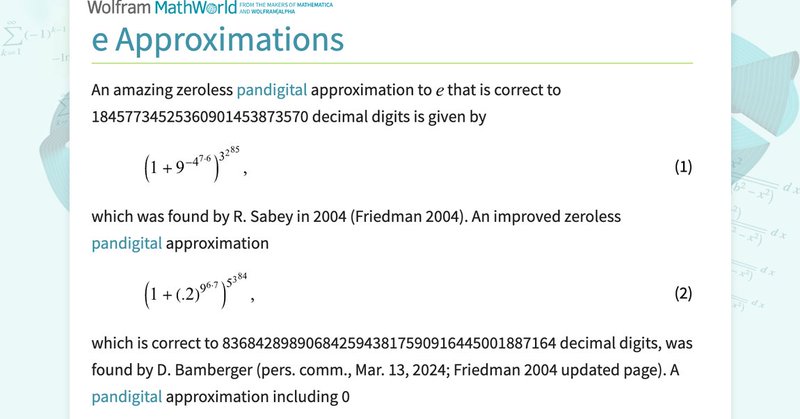
Daniel Bamberger
@renerpho
Followers
568
Following
5K
Media
292
Statuses
2K
Space fan. Nerd. Genealogist. All maths and history. Asteroid 128345. @NBObservatories
Marburg, Deutschland
Joined July 2015
I am proud to announce that @NBObservatories have been awarded a 2025 Shoemaker NEO Grant by The Planetary Society! 🎉🔭🌠 https://t.co/dZlD0Hh4Ze
0
1
4
In exactly 10 minutes, Asteroid 46925 Bradyharan will cross the ecliptic plane, plunging from the north to the south of our huge planetary disc. This extreme north/south nature is a reason the rock was picked for me - 🇬🇧🇦🇺 - and coincidentally it's currently visible in my
1
1
56
To my knowledge, yesterday's naming of (429733) Gilbertbaker, a large Amor-type Near Earth asteroid, marks the first -- even indirect -- representation of the LGBTQ community in space. https://t.co/tIkdA0MjPU
0
0
1
@BradyHaran These were taken immediately after we had finished imaging (46925) Bradyharan that night.
0
0
1
A friend took some images of "my" asteroid (128345) Danielbamberger in February, and sent me the raw data today. I turned it into a little animation. It's been a while since I've seen that rock! Visible here at 21.3 mag. Images taken at Deep Random Survey, Chile (X09).
2
0
2
Wow, the number of known moons of Saturn has nearly doubled today!
5
28
200
Contratulations to Brady, and enjoy your new piece of real estate among the stars! 7/7
1
0
1
Over the past few weeks, I've concluded that I am okay now with stepping forward. I will continue to protect the identity of the other friend with whom I came up with the name for Matt's asteroid, until they decide it is time. 6/7
1
0
0
I am thankful to both Brady and Matt for how nicely they have handled our request for anonymity in the videos they made about Matt's asteroid (check those out if you haven't seen them!), and also to David Rankin for being available to do an interview with Matt. 5/7
1
0
0
When a friend and I similarly named @standupmaths 314159 Mattparker last year, we asked for anonymity. We weren't sure how this would be received, and I think the attention rightly goes to Matt, Brady, and the folks at Catalina who are doing the hard work finding those rocks. 4/7
1
0
0
2. I wanted it to fit Brady in some way. The orbit of 46925 is such that it is sometimes visible only from the northern, sometimes only from the southern hemisphere. However, it is at its brightest exactly when it can be seen from both hemispheres at once. 3/7
1
0
0
There were two main reasons for choosing this particular asteroid: 1. It is one of the largest unnamed main-belt asteroids, at 13 km in diameter, and one of the brightest, reaching 16 mag at a good opposition. I want his fans to have the opportunity to capture images of it. 2/7
1
0
0
Asteroid (46925) 1998 SS27 has just been named after @BradyHaran, the host of YouTube channels like "Numberphile", "Periodic Videos", and "Objectivity". Naming it was my idea, and I am very grateful to David Rankin at the Catalina Sky Survey for helping me with it! A thread. 1/7
1
0
2
@numberphile The new approximation is correct to 8368428989068425943817590916445001887164 decimal digits.
0
0
0
@numberphile As an extra benefit, it also works as a pan-digital formula with the digits from 0 to 9, if you prefer to write the decimal number .2 as 0.2. This was one of the criticisms/questions from the 2016 Numberphile video.
0
0
0
@numberphile My solution starts from Richard Sabey's, and is similar to his in many ways. I just tried to increase the base of the expontial tower from 3 to 5, leaving the rest intact if possible. Turned out that works!
0
0
0
@numberphile The Numberphile video: https://t.co/ZBgC9XbaS3 Erich Friedman's puzzle website (just updated with my new solution): https://t.co/mjOx4N5dEC More about approximations of e, from MathWorld: https://t.co/3DNfJtUHWF An explanation how I found it:
mathworld.wolfram.com
An amazing zeroless pandigital approximation to e that is correct to 18457734525360901453873570 decimal digits is given by (1+9^(-4^(7·6)))^(3^(2^(85))), (1) which was found by R. Sabey in 2004...
0
0
0
There is this puzzle to approximate the number e with a "pan-digital formula", in which each of the digits from 1-9 is used exactly once. The best known solution (Sabey, 2004), covered by @numberphile in 2016, is correct to 18 trillion trillion digits. I just found a better one!
4
0
1


